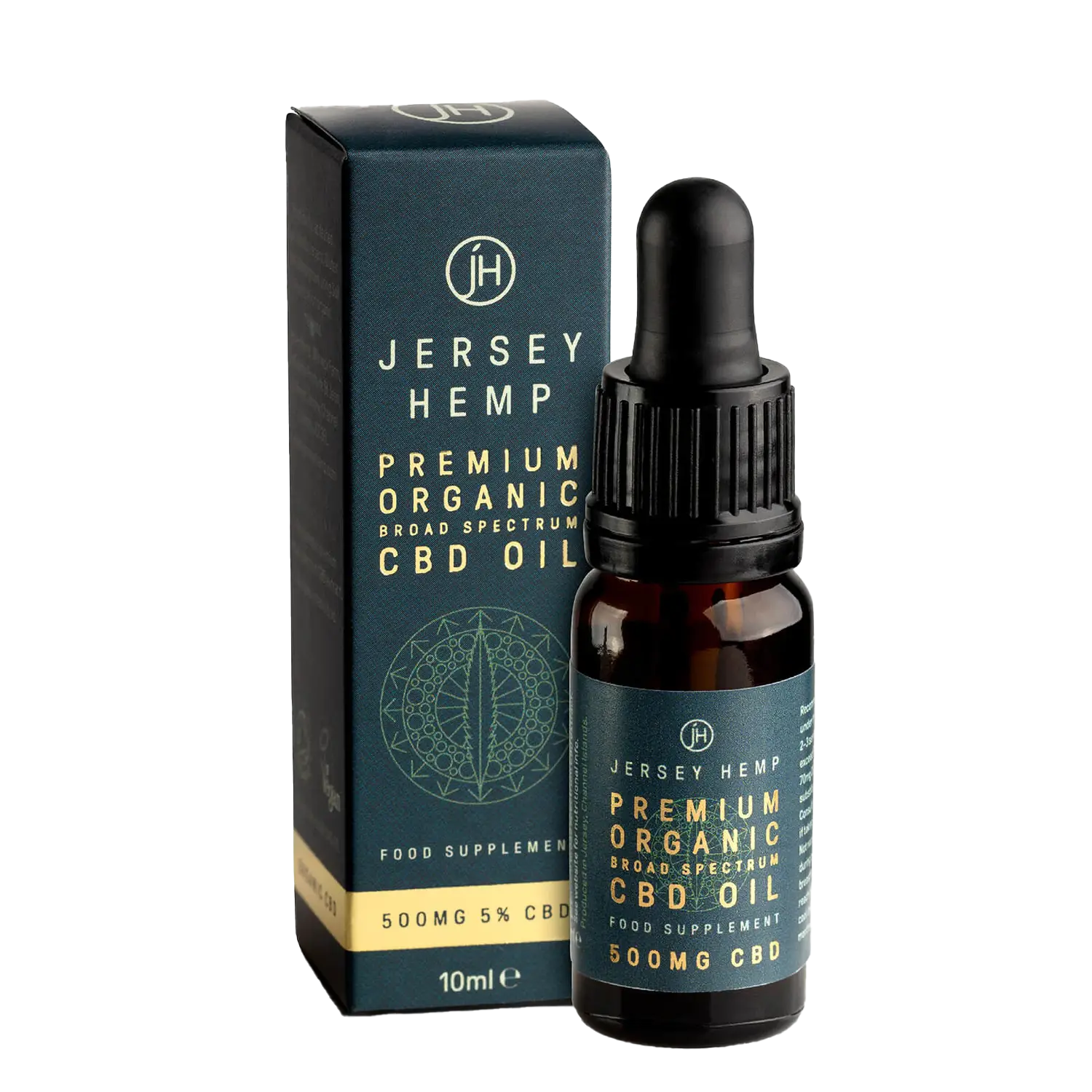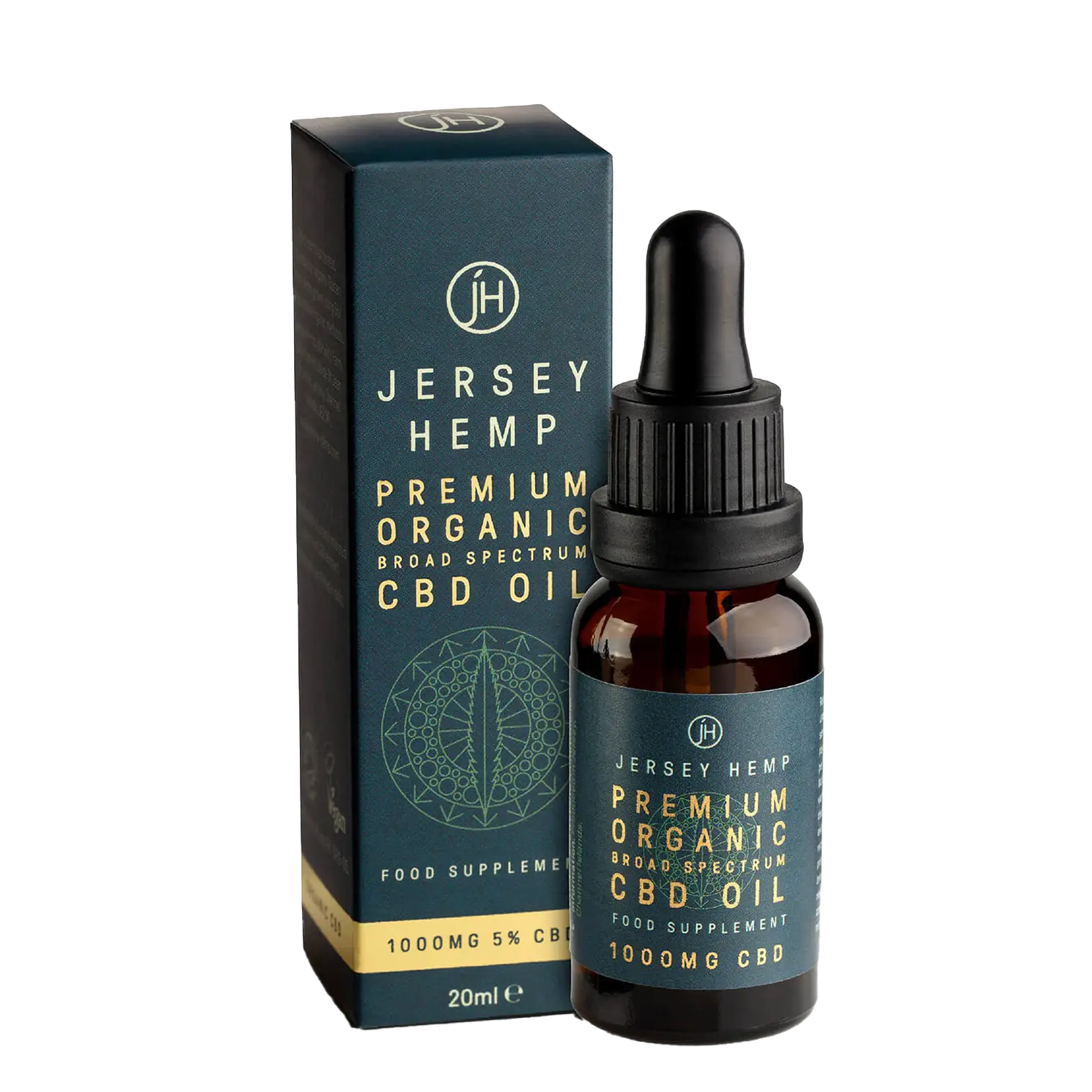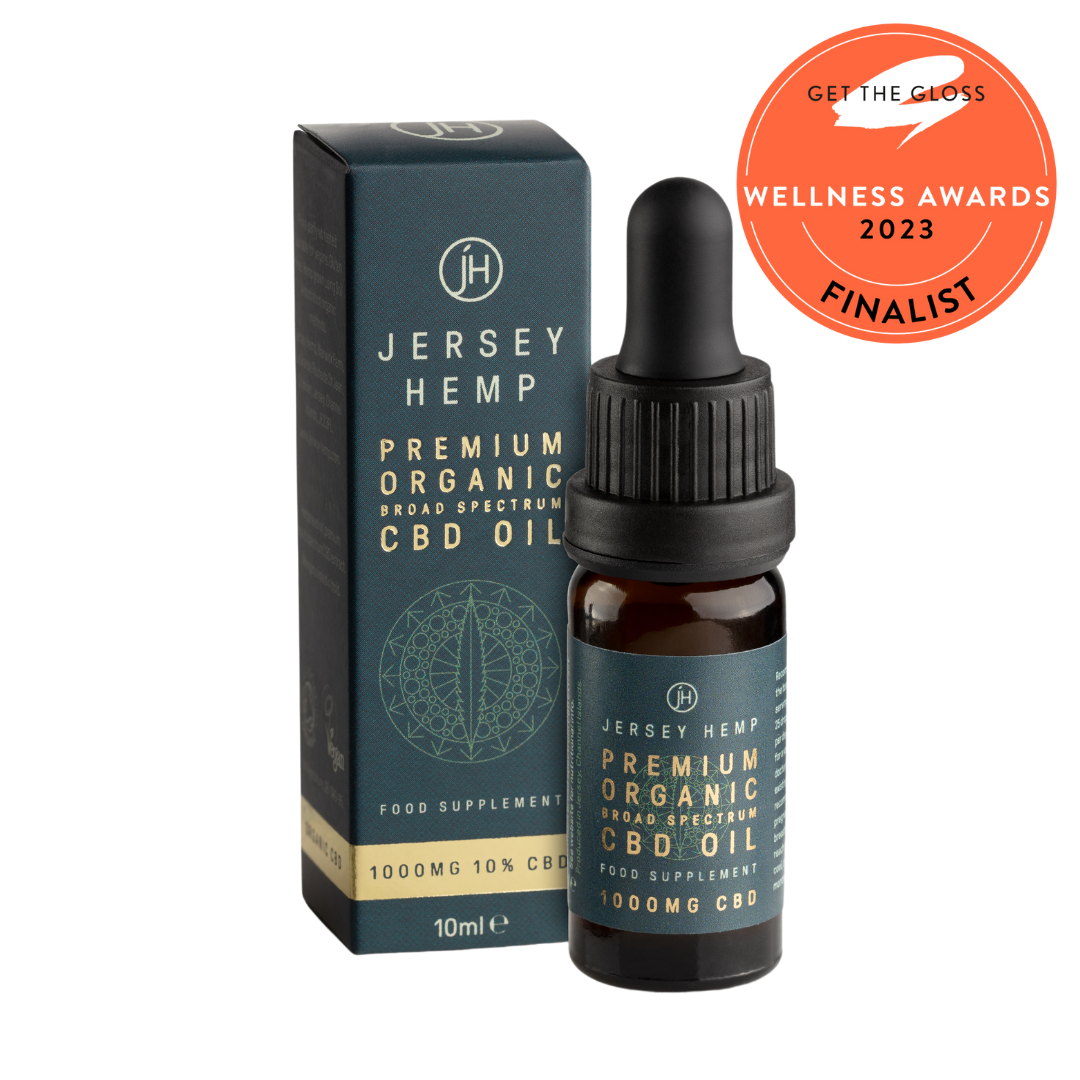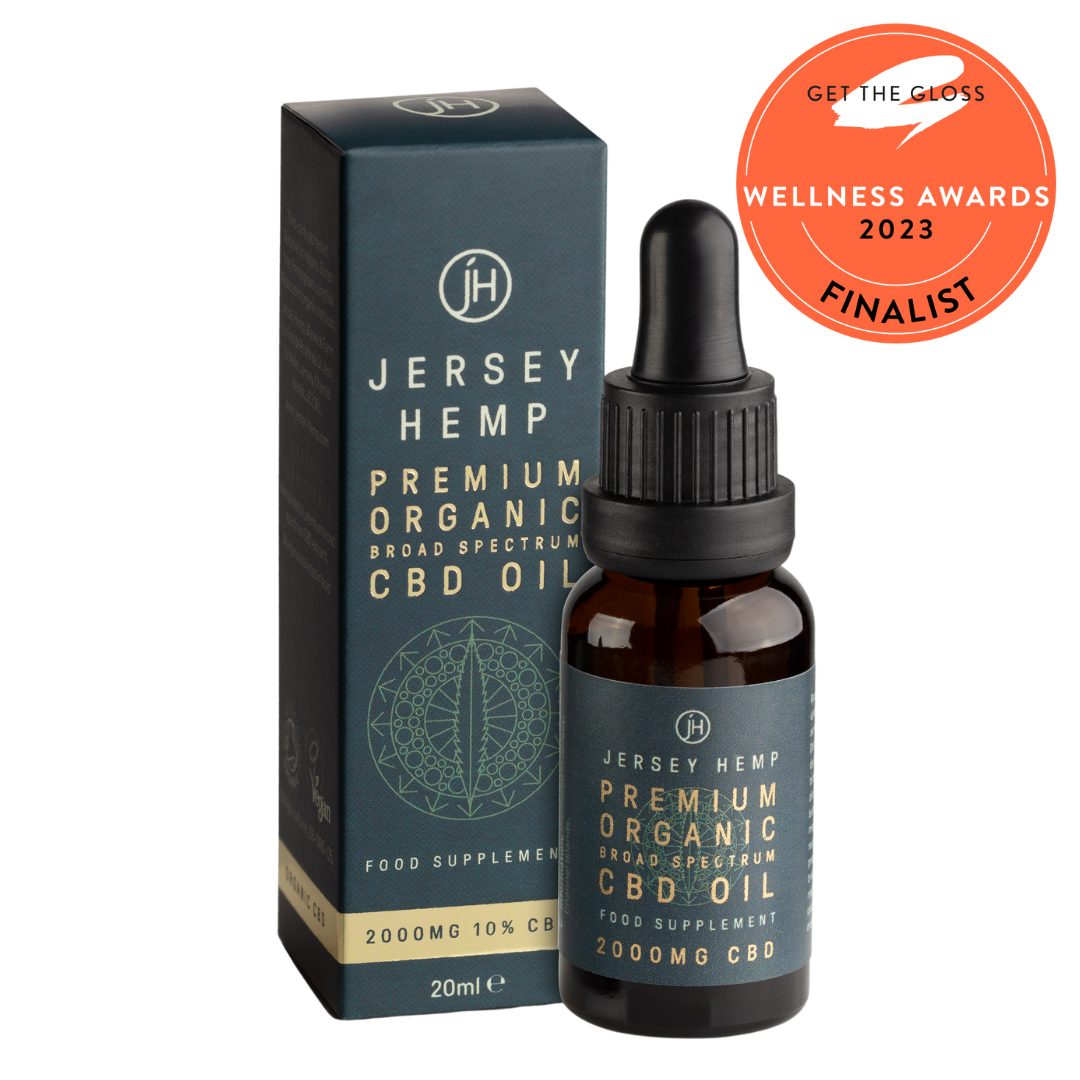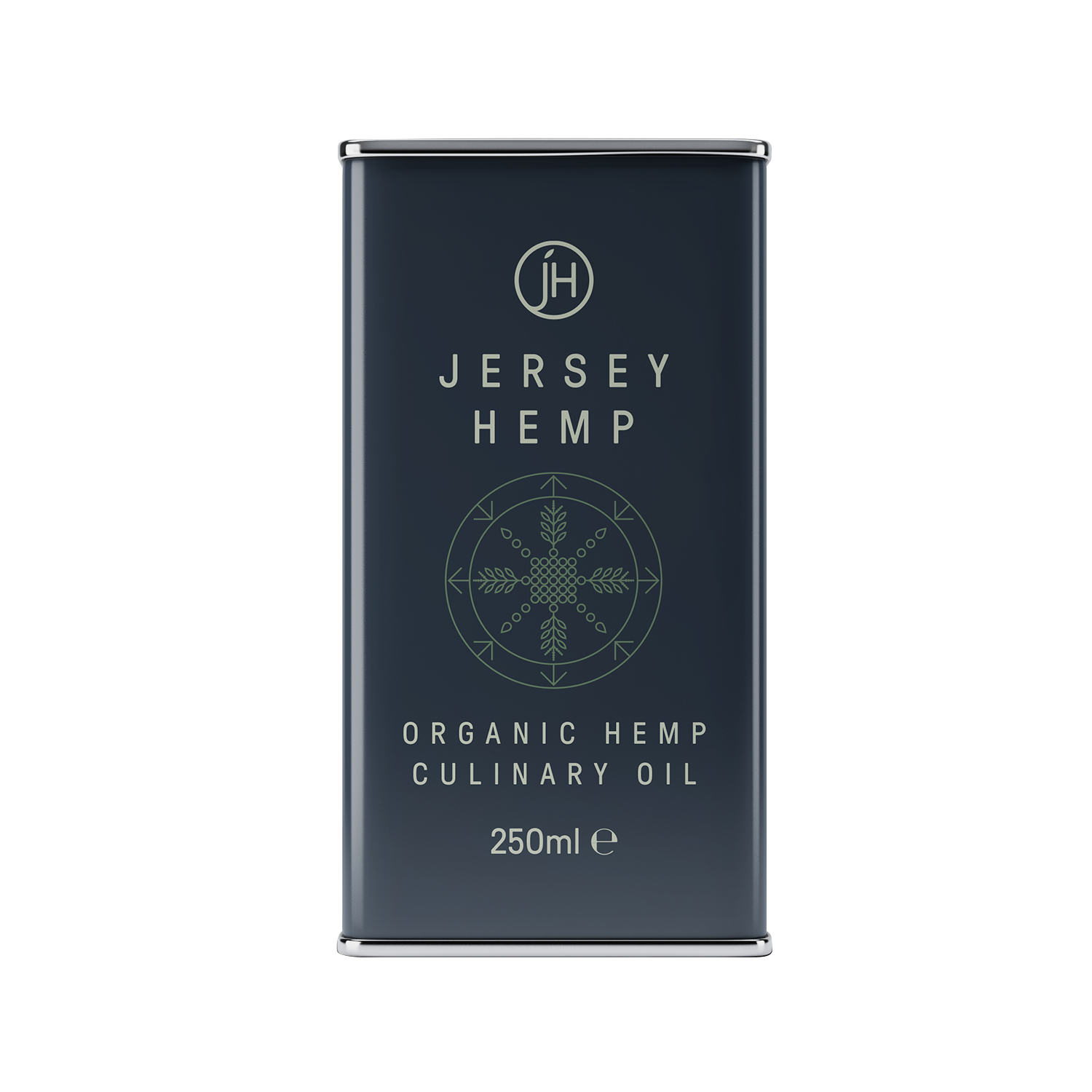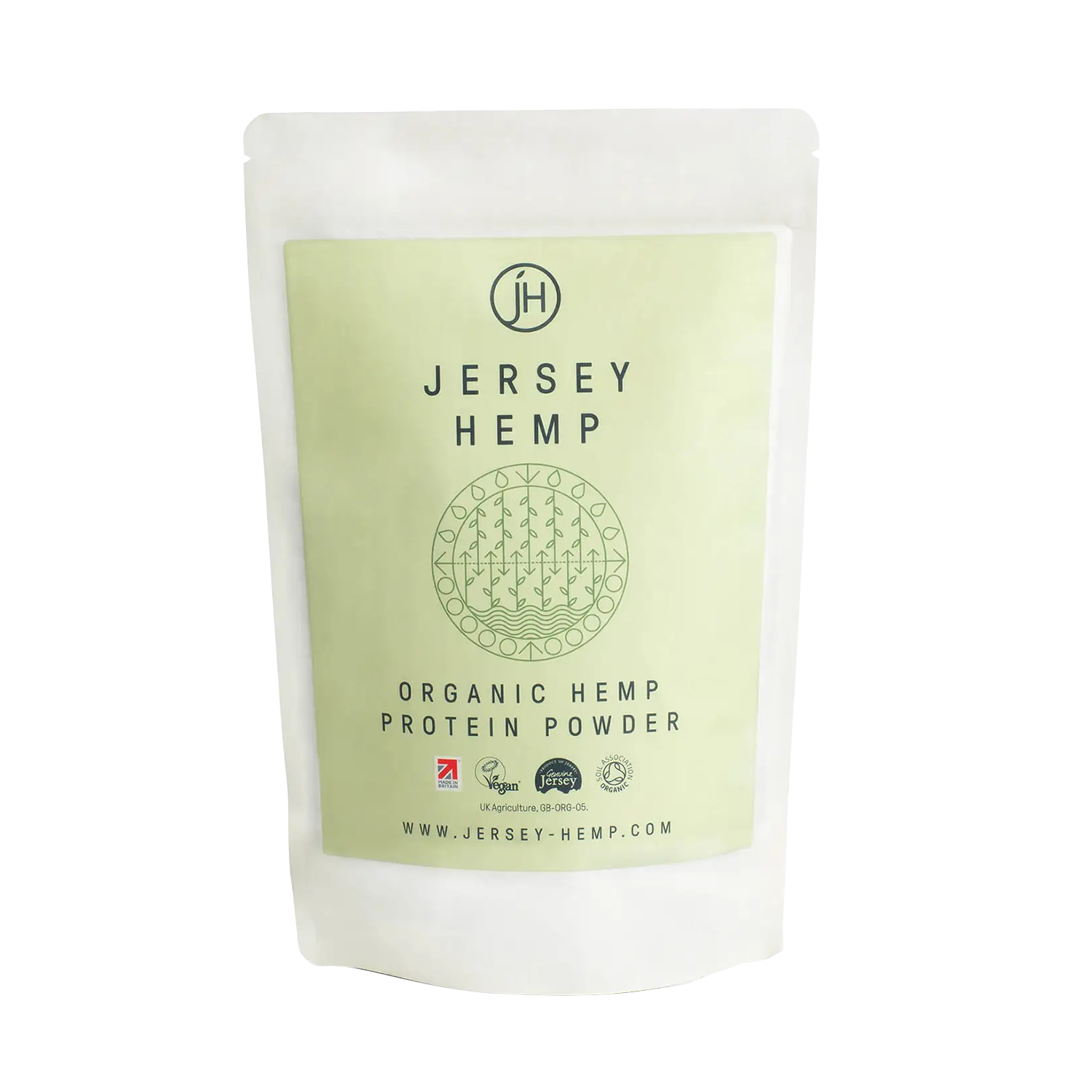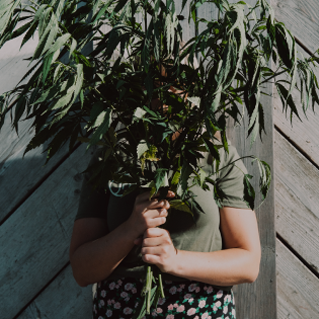Does CBD oil get you high?
CBD, aka cannabidiol, is a cannabis extract used in a range of natural wellness products. It’s hugely popular, and there is also an increasing amount of clinical evidence suggesting it has therapeutic potential in treating a variety of health conditions.
Given its origins, however, you may be wondering whether CBD also creates the ‘high’ feeling associated with recreational cannabis use. Here, we’ll address that question, consider the differences between CBD and another cannabis compound, THC, as well as looking at how CBD makes you feel, its potential benefits and side-effects, and safety concerns around it.
Can CBD Get You High?
Pure CBD is considered a non-intoxicating substance – according to a recent statement by the Court of Justice of the European Union it “does not appear to have any psychotropic effect” – so taken in isolation it will not get you high.
Among the many ways to take CBD, you can inhale it from a vaping liquid. But, assuming the CBD is pure, even this will not produce the psychoactive effects associated with smoking cannabis.
That’s because it’s the cannabis extract THC, not CBD, which creates the high.
CBD Vs THC
CBD (cannabidiol) and THC (tetrahydrocannabinol) are compounds known as cannabinoids found in the plant cannabis sativa.
THC is the most prevalent cannabinoid in varieties of cannabis used recreationally and is responsible for the ‘high’ associated with smoking marijuana. CBD is the most common cannabinoid in strains of cannabis known as hemp, which are bred to have low THC levels.
CBD is used as a wellness remedy and appears to have therapeutic value for a wide range of health conditions. It is sold as a bottled oil that can be taken orally or sublingually (under the tongue), as well as in vaping liquids, edible gummies, capsules, topical creams and cosmetics.
Scientists don’t yet have a complete picture of how CBD and THC interact with the body but some important mechanisms appear to involve the Endocannabinoid System (ECS). The ECS is responsible for homeostasis – the maintenance of internal states such as temperature, pain / inflammatory responses and mood.
However, CBD and THC appear to influence the ECS in different ways. While THC binds to ECS receptors in cells in the central nervous system, creating a euphoric feeling, CBD actually inhibits these effects, reducing the high of THC when they are taken together. This relationship has been exploited to create drugs – including the multiple sclerosis treatment Sativex – that use CBD to reduce the unwanted effects of THC.
Does CBD Contain THC?
Although both compounds come from strains of the cannabis sativa plant, CBD is usually extracted from varieties that contain only a small amount of THC, generally 0.2% in the UK and the majority of European countries and 0.3% in the United States. In most cases, processing further reduces the amount of THC in CBD products, often to an untraceable level.
While recent investigations have shown that a significant number of CBD products on the UK market contain more THC than is indicated by their packaging, this only averages 0.04%, nothing like enough to create intoxication or a high feeling.
It’s true, however, that some brands that cannot demonstrate the provenance of their hemp could have larger amounts of THC in their products. Although in most cases this is still unlikely to be at a level that will get you high, it does mean it’s important to choose CBD products from a trustworthy producer that can confirm both CBD and THC levels using independent third-party laboratory tests.
How Does CBD Make You Feel and What Are The Benefits?
While taking CBD may not get you high, many users do report an improvement to their general mood and sense of wellbeing. A large-scale survey of arthritis patients found that 41% of CBD users experienced an increased overall sense of well-being, 77% said it relieved anxiety symptoms and 67% that it was effective in improving depressed moods.
Research also suggests that CBD has the potential to help with a wide range of health conditions, including pain, anxiety, sleeping disorders and some cancer symptoms.
There are currently two medications containing CBD available by special prescription on the NHS – Sativex, which treats muscle stiffness and rigidity in multiple sclerosis patients, and Epidiolex which can help with rare forms of epilepsy.
Is CBD Safe and What are the Side-Effects?
The World Health Organization says CBD has “a good safety profile” and poses no discernible risk to public health, while researchers generally consider it ‘well tolerated’, meaning it is rare for patients to drop out of medical trials due to adverse effects.
However, a small proportion of CBD users do experience minor side-effects, including dry mouth, drowsiness or fatigue, changes in appetite and in some cases diarrhoea, nausea and mood changes.
It’s also important to be aware that CBD can interact with a range of medications in a way that may be dangerous.
CBD inhibits the action of certain enzymes which would normally break down drugs in the body. This could lead to potentially unsafe levels of the medication in the system, accentuating its side-effects.
One of the enzymes that CBD interacts with is also inhibited by the ingestion of grapefruit and other related citrus fruits so you should not take CBD with any medication that comes with a grapefruit warning without first talking to your doctor.
However, CBD also inhibits enzymes that metabolise some drugs that do not carry a grapefruit warning, therefore you should consult your doctor before taking CBD with any medication.
Is CBD Legal?
In the United Kingdom, CBD in its pure form is legal. However, THC is not. Since it can be difficult to remove all trace of THC during the CBD production process, the government allows a small amount of THC to be present in CBD products.
Any single bottle or packet of CBD can contain no more than 1mg of THC. To put that into context, 1mg of THC would make a 30ml bottle of CBD oil 0.003% THC and a 10ml bottle 0.01%.
Trustworthy CBD brands should be able to demonstrate THC levels lower than this via independent laboratory test results displayed on their websites. Given that the CBD market is relatively unregulated, it’s possible that you may still be able to purchase CBD containing significantly more than the legal levels of THC from certain sources. But with new regulations coming in soon, in the UK at least this is likely to be more of an issue for producers than it is for consumers.
CBD is also legal in many – but not all – countries in Europe, with 0.2% the most common upper limit for THC content. Some countries are more liberal – but others are stricter. In Austria, a change to how the law is interpreted means CBD is no longer considered a food supplement and products like CBD gummy sweets and CBD capsules are banned. In a number of other countries, CBD is still considered to be cannabis and is illegal.
In the US, CBD is federally legal but different states have different laws around cannabis and its extracts.
Laws around the rest of the world vary hugely but there are many countries where cannabis is illegal, with severe penalties for possession, and where any substance based on or extracted from cannabis is subject to the same laws as cannabis itself.
If you are considering taking CBD products into another country, make sure you understand the laws around cannabis-based products there. If you are unsure, do not risk it.
Only buy CBD products that can prove their levels of THC content are within the relevant legal limits.
Medical Disclaimer
The author of this article is not a medical expert and nothing in this article constitutes medical advice or gives rise to a medical practitioner/patient relationship. You should seek specialist medical advice where required. Never disregard professional medical advice or refrain from seeking it because of something you have read here.
